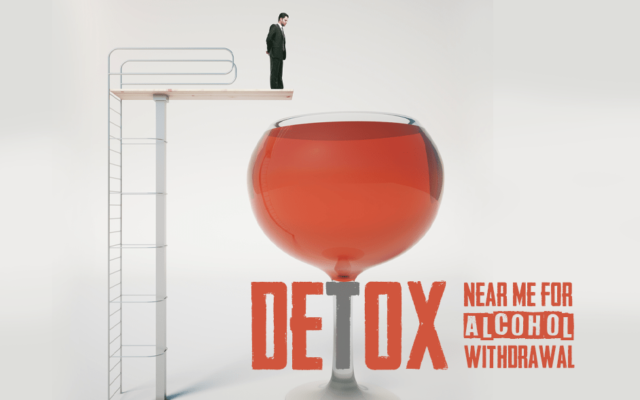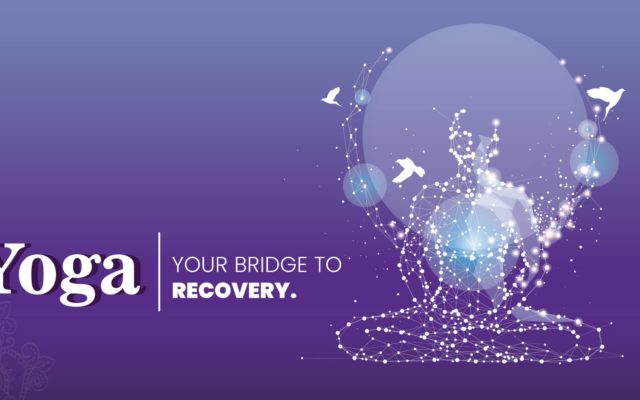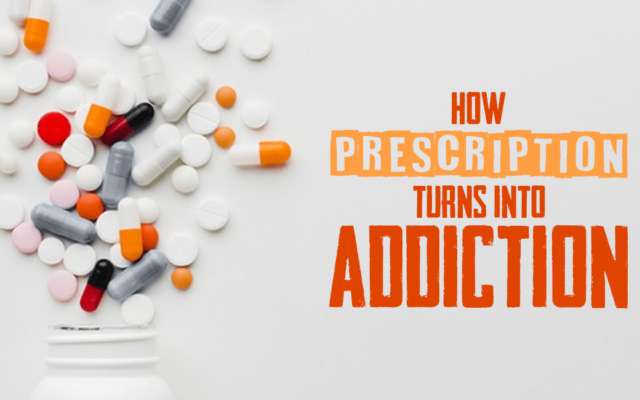Opioids are a form of drug that has a highly addictive nature. Opioid abuse has unfortunately become a national crisis in the United States. The National Institute on Drug Abuse has reported that more than 2 million Americans abuse opioids and that more than 90 Americans die due to opiate addiction and opioid overdose every day on average. These statistics highlight the severity of opioid misuse over a specific period of time. Still, it’s never too late to admit that you need help and there are opioid treatment options to get you back on track to making your life better and brighter.
Before proceeding further, it is crucial to know the difference between opioids and opiates.
Opiates are natural because they are created by nature and the active ingredient molecules. Common opiates usually include “opium,” “morphine,” and “codeine”; the only similarity is that they are both made directly from poppy plants. An opioid is a substance or a synthetic or partly synthetic molecule, which means that the active ingredients are created by chemical means.
Individuals can often be exposed to opioids when their doctors prescribe them, and after that, the tendency to use them recreationally increases. In usual cases of headaches or muscle aches, a pain killer is often defined to help you rid of your pain. Still, when it becomes unbearable, the doctor might recommend something more substantial, like a prescription opioid.
Opioids are a type of narcotic pain medicine and can have dire effects if not used with proper caution and safety. As mentioned above, for people with opioid abuse addiction their addiction usually takes a turn for the worse because of the prescribed opioid.
Sometimes, drug abusers can take the dosage of a particular drug more than they intend to. They spend much of their time recovering from its effects, and gradually with time, the addiction increases and forces these individuals to give up other pursuits of their life (hobbies, job, loss of appetite, daily routine) for the sake and the need of the drug. And they continue to use it despite the severe physical and psychological harm that the drug causes them because they are addicted to the medication completely. Some abusers cannot hold their jobs because of the drug effects, and when they run out of money to buy the drugs, they turn towards crime and violence to pay for their illegal drugs.
For individuals who take opiates every day for a more extended period, their nerve receptors adapt to the dosage of the drug taken. Then the opioid receptors begin to resist the drug, which causes the abuser to do higher doses of the drug. The other side effects of opiates and of this tolerance is a physical withdrawal reaction when the drug leaves the body, and receptors are forced to readapt to its absence. It is essential to know that this physical dependence on the drug is not in any way equivalent to the addiction it causes. Many clients who take an opiate for pain are physically dependent on it but not addicted: The drug does no harm to them, and they do not crave it or go out of their way to obtain it, which is safe and not threatening.
Luckily, opioid addiction or any kind of substance abuse is not something that comes without treatment, so we can go for medical detox to start our journey towards a better life. It can often be difficult, choosing a path in life that leads away from your addiction and towards a brighter future for yourself and your family. It is essential to know that deciding to leave your addiction to opiates and hopping on to the road of recovery can be too daunting and challenging. Still, detox from opiates is always the best choice that one can ever make. It is the choice that will set everything in perspective and give you hope for a brighter, more beautiful future.
Let’s talk about how or what we can ultimately do to get out of the addiction we are in, well. There are numerous amounts of rehabilitation centers and healthcare services that are just there for you to help guide you and make you well enough to start over in life with successful recovery, but before we get into the mechanisms of how you can get help and what are the best detox centers near you to help you cater with medical detox programs, let’s delve in why we need a detox firstly, and what ultimately is a “detox.”
What is Detox?
Detox is a process or a specific withdrawal period or period where an individual refrains from or rids the body of toxic and unhealthy substances like drugs or alcohol.
Suppose you are a heavy alcohol drinker and drink alcohol heavily for weeks, months, or maybe even years. You may have to go through mental and physical problems when you eventually decide to stop or cut back on how much you drink seriously. The side effects after you call quits on your alcohol habits is called alcohol withdrawal. The symptoms can often range from mild to severe.
If you are an occasional drinker and not a heavy drinker, it is significantly less likely that you will have withdrawal symptoms when you stop. But if you have gone through alcohol withdrawal once in your lifetime, you are more prone to going through it again the next time you call it quits. There are several ways for opiates detox after an alcohol withdrawal at home if you are not able to go to a rehab facility due to any reason. Still, it is highly recommended that you do a detox under the supervision of a medical expert.
Opioid addiction is known as a chronic medical condition, and it can create changes to your brain that can have long-term effects. Still, early medical attention and effective treatment can help you avoid some of the long-term health effects associated with the addiction to opioids.
It is not as simple as just quitting it one day and getting your life back on track. It takes much more than just willpower to break free from the vicious cycle of drug abuse. Still, you can also escape the cycle of detox and relapse, which is why it is imperative to go to a rehab center with trained doctors and therapists that will for sure set your path up for recovery. It can be a long-term process and a little daunting to think about, but medications and counseling improve your chances of success at being clean significantly. Heroin also comes in the drug category and is an opioid as well, and addiction heroin is treated similarly to prescription drug addiction.
Physical Dependence and Detox
Opioid addiction leads to changes in some regions of your brain. Prescription drug addiction alters the circuits that handle and regulate your mood and reward behavior.
Also, long-term prescription drug abuse affects almost the entirety of your body’s systems. When you cut off the opioid supply, you’re likely to get withdrawal symptoms such as:
- Craving for drugs
- Diarrhea
- Large pupil
- Yawning
- Belly pain
- Runny nose
- Chills and goosebumps
- Nausea and vomiting
- Body aches
- Agitation and severe bad moods
If you or your loved one have an opioid addiction, it is evident that a written list of these symptoms of withdrawal does not even begin to capture the agony of going through them. It is exceptional= unpleasant, and an individual will do almost anything to avoid it.
The Opioid withdrawal process lasts hours to days and sometimes even weeks. It just depends on the kind of the drug and which drug you were taking, how long you were taking it, and how much of it you were taking. After the intense initial opiate withdrawal symptoms settle down a bit, some physical and mental discomfort may linger for weeks.
If you are suffering from alcohol or opiate abuse, there are a few detox measures you can take to ensure that you come out of the abusive relationship with alcohol itself. Which are as follows:
Limit Alcohol Consumption
It is said that more than 90% of alcohol is metabolized in your liver. Liver enzymes help metabolize alcohol to acetaldehyde, which is a known cancer-causing chemical.
The liver converts acetaldehyde recognizing it as a toxin, into a harmless substance called acetate, which is later eliminated from your body, helping with the detox.
Drinking too much alcohol reduces your liver’s ability to carry out its normal functions, such as detoxifying, which is why it is crucial to limit alcohol consumption. Limiting or avoiding alcohol entirely is one of the best ways to keep your body’s detoxification system running firmly and smoothly.
Focusing on Your Sleep Cycle
Making sure that you get adequate and quality sleep each night is very important to help give support and ease to your body’s health and the natural detoxification system.
Sleeping helps your brain in recharging and reorganizing itself, and it also removes the toxins or toxic waste by-products that have accumulated throughout the day due to drinking.
Why it is essential to get quality sleep is because due to sleep deprivation because the body does not have time to perform its important functions, ultimately allowing the toxins to build up and affect several aspects of your overall health.
Getting enough sleep allows your brain to reorganize, recharge, and eliminate toxins that gather in your body throughout the day.
Drinking More Water
Water is essential for your body’s regulation system. It helps and regulates your body temperature, moistens the joints, aids in digestion, and helps in your nutrient absorption as well, and it also detoxifies your body by removing waste products!
In addition to water’s many roles in your body, water also allows your body’s detoxification system to remove waste products from your blood helping in the detoxification process.
Reducing Your Intake of Sugar and Processed Foods
Sugar and processed foods are thought to be at the root cause of today’s public with such major health crises for an obvious number of reasons.
High consumption of sugars and highly processed, carbonated foods and drinks have been linked to obesity as well as chronic diseases for example: heart disease, cancer, and diabetes.
These diseases come between your body’s ability to naturally detoxify itself by harming organs
Eating Antioxidant-Rich Foods
Antioxidants help protect your cells against damage. so, consuming a diet that is ultimately rich in antioxidants helps your body to reduce damage that is caused by free radicals and it may also lower the risk of diseases that can impact the detoxification process.
Eating Foods High in Prebiotics
The health of your gut is important for keeping your detoxification system healthy and working in its prime state. The intestinal cells have a detoxification and excretion system that helps in the protection of your gut and body from harmful chemical toxins, and other toxins as well.
Great gut wellbeing begins with prebiotics, a sort of fiber that takes care of the great microorganisms in your gut called probiotics. With prebiotics, your great microscopic organisms can deliver supplements called short-chain unsaturated fats that are valuable for the wellbeing of an individual.
The good bacteria in your gut can often become unbalanced due to the bad bacteria from the use of antibiotics as well as a poor dental hygiene and poor diet plans.
Consequently, this unhealthy shift in bacteria can weaken your immune and detoxification systems and increase your risk of disease and inflammation.
Eating meals rich in prebiotics can maintain your immune and detoxification structures healthy. Good food resources of prebiotics encompass tomatoes, artichokes, bananas, asparagus, onions, garlic, and oats.
Eating a weight loss program wealthy in prebiotics keeps your digestive machine wholesome, which is crucial for correct detoxing and immune fitness.
Decrease Your Salt Intake
For a number of people, detoxing can mean a method of getting rid of extra water.
Consuming too much salt often results in your frame withholding extra fluid, mainly whilst you are suffering with a health disorder that impacts your kidneys or liver or if you do not drink sufficient water.
This excess fluid that builds up can usually cause bloating and make your clothing uncomfortable as it is not the correct size. If you find yourself consuming too much salt, you can detox yourself of the extra water weight and work towards the betterment of your healthy lifestyle.
While it may sound counterintuitive, increasing your water intake is one of the best-known ways to eliminate the excess water weight that you put on due to consuming too much salt.
That usually happens because you consume too much salt and with that, not enough water. Your body releases an antidiuretic hormone that helps prevent you from urinating and therefore detoxifying your body.
Furthermore, by increasing your water intake, your body reduces the secretion of the antidiuretic hormone and increases the process of urination which helps in eliminating more water and waste products.
Increasing your consumption of potassium-wealthy meals which counterbalances a number of sodium’s outcomes additionally allows. Foods wealthy in potassium include potatoes, squash, kidney beans, bananas, and spinach. Consuming too much salt can increase water retention. You can do away with excess water and waste by increasing your intake of water and potassium-rich foods.
Get Active
Regular exercising regardless of body weight is associated with a longer life and a reduced risk of many conditions and diseases, including type 2 diabetes, heart disease, high blood pressure, and certain cancers. While there are several mechanisms behind the health benefits of exercise, reduced inflammation is a key point in the road to recovery.
While some inflammation is necessary for recovering from infection or healing wounds, too much of it weakens your body’s systems and promotes disease.
By reducing inflammation, exercise can help your body’s systems including its detoxification system function properly and protect against disease.
It’s recommended that you do at least 300 minutes a week of moderate-intensity exercises such as brisk walking or 150 minutes a week of high-intensity physical activity that causes your heartbeat to increase such as running.
Lastly, you are never alone in this battle against your addiction, there is always a way out and it is always within reach.



